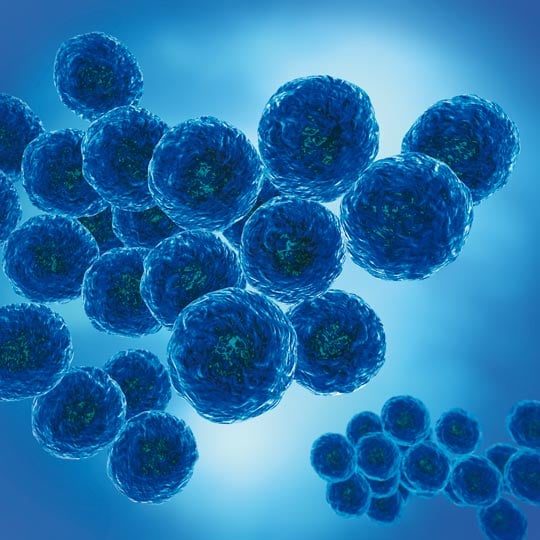Knowledge Portal
HARTMANN SCIENCE CENTER

Visit our designated HARTMANN SCIENCE CENTER to get scientific information relevant around our products.
Learn more
Staphylococcus pasteuri is a coagulase-negative, Gram-positive bacterium of the Staphylococcaceae family.
Coagulase-negative staphylococci may trigger wound and urinary tract infections as well as chronic prostatitis and bacteraemia in immunosuppressed patients.
Due to many resistances to antibiotics Staphylococcus pasteuri is of clinical importance.
Main transmission path probably is direct or indirect contact with contaminated persons or objects.
» Necessary spectrum of antimicrobial activity
Bactericidal
